The VHS collection at the Media Library seems to gain more and more notable titles each time I venture back, I wonder if perhaps my fascination with this awkward medium is simply just growing or if maybe my eyes are slowly being opened to the hidden treasures on these shelves. Regardless, I seem to be on a French film kick since watching, La Haine, 1995, last week and today I bring to you yet another incredible French film, Weekend, 1967 by Jean-Luc Goddard. This time we travel back a few more years and venture into the belly of the beast known as French New Wave. That’s right the time for diving into those off the wall, avant-garde films is here, for all you movie buffs and RTVF students who recognize this title from the poster hung on the wall of the second floor of the RTVF building I strongly encourage you to watch this film, free of devices, and to actually watch the film before enlisting in your next, I love French films discussion, at your local hip café of choice.
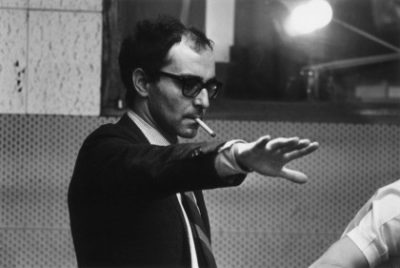
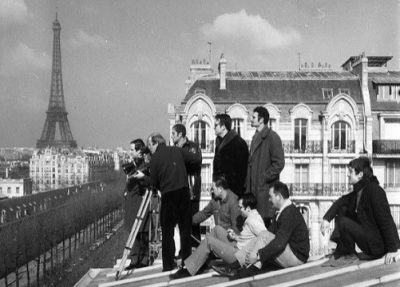
While this film didn’t receive too much festival attention, it has surely become a relic in the massive collection of Goddard’s canon of work and as contemporary artifact of the French New Wave period for the cinematic arts. This film was nominated for the Golden Bear at the 18th Berlin International Film Festival but other than that it has primarily lived on through its artistic legacy. In order to understand what kind of film you are about to buckle down for, it is important to recognize that Goddard amongst the many directors and artist of the Existential and French New Wave periods were creating artistic artifacts such as films, with a high degree of symbolism, intentional commentary, and violent opposition to the ruling classes of their world. This allows an audience member to clue into the fact that perhaps the entertainment value of such artifacts, like this film, take a back seat to the artistic integrity and message of the artifact. This stands true to most of Goddard’s work including this enchantingly violent film.
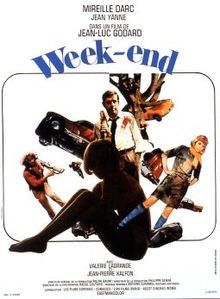
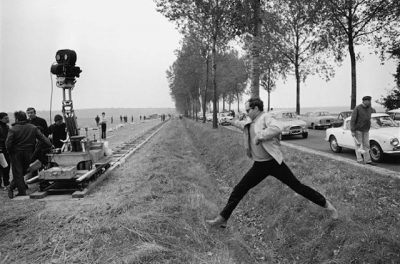
The narrative of this films takes us through the journey of a French bourgeois couple as they make their way to meet the parents of the female lead with intentions to strip the older couple from their will at whatever cost necessary. Though the journey this couple takes very quickly becomes saturated with heavy symbolism, apparitions of historical and literary characters, and commentary on social situations in an episodic sort of structure which at first glances strikes one as confusing yet strikingly intentional. The film is filled with incredibly long sequences, including a magnificent 10 minute long scene of a traffic jam in the French country side. The film is violent with imagery and showcases its intentions through vibrant colors, surreal situations, and heavy dialogue in combination with stunning visual imagery. If any of you are a fan of the work by Kenneth anger I highly recommend you take a look at this film. While this film is overly saturated with academic and literary references and an immense amount of symbolism the beauty of the film isn’t lost to the heavily aggressive and Marxist commentary. This film is a refreshing look at what an artistic artifact of the visual kind should feel like, rules are broke, decisions by the creator are aggressively portrayed, the audience is required to actively interact with the film, and the dark Marxist tone is representative of a cultural movement which has been damned by many of us in the west and specifically in America. This film is overall captivating, devastatingly beautiful, and a powerful yet violently refreshing piece of art and available for all to see right here at the Media Library, so don’t wait!
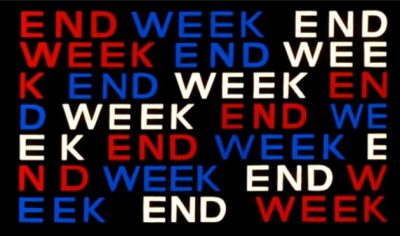
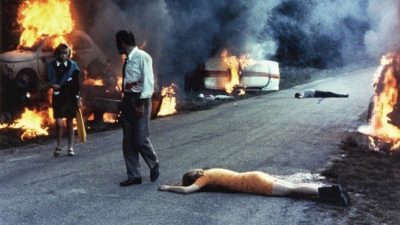
Post by Special Projects Student Assistant Cesar Velasco



Leave a Reply